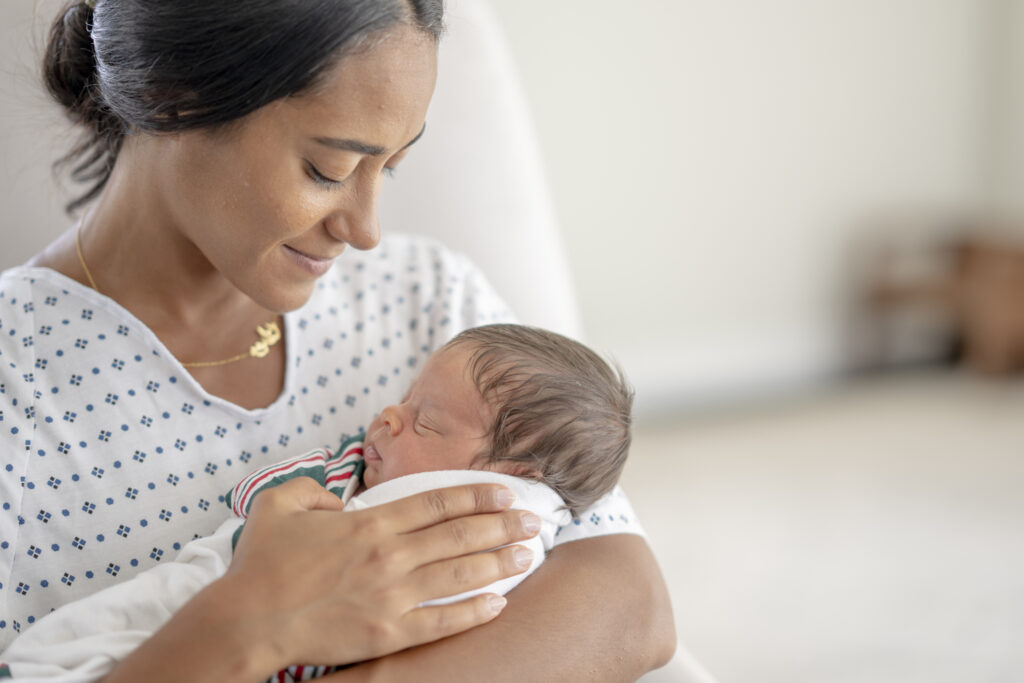Confronted with a pandemic that impacts the health of women and children – ranging from pregnancy and delivery to access to substance abuse treatment – a consortium of New Jersey state and health care experts launched a Project ECHO (Extension for Community Healthcare Outcomes) initiative to share COVID-19 expertise between specialists and primary care to meet the needs of women during the crisis.
Originally, the Rutgers Project ECHO partnered with the Robert Wood Johnson Medical School, New Jersey’s departments of Health, Human Services, and Attorney General, Division of Consumer Affairs, Rutgers Medical School, and The Nicholson Foundation to develop a Project Echo that focused specifically on maternal and child health (MCH) and opioid use disorder (OUD). This ECHO was to be funded through a federal Substance Abuse Prevention and Treatment Block Grant, but with COVID-19’s increased demands on community providers, New Jersey’s Department of Mental Health and Addiction Services agreed to postpone that effort and refocus on a COVID-19-specific ECHO.
Using interactive technology, the ECHO Model™ connects groups of community providers with specialists in regular collaborative sessions. The sessions, with case-based learning and mentorship, help local workers gain the expertise required to provide needed services, especially during a public health emergency.
This temporary change enabled the Rutgers team to address treatment issues, access to health care services, and how to meet the needs of specific populations of women during the crisis. The initiative has increased the workforce’s capacity to address the impact COVID-19 on pregnant and parenting women and advanced best care practices.
How Project ECHOs Work
Project ECHO, initially developed by the University of New Mexico to address hepatitis C, is a national model that focuses on building provider capacity across a region or state by connecting experts/specialists to local providers. This model, funded through a mix of public and private funds, encourages a virtual, bi-directional exchange of information between peers and subject matter experts on a particular topic. University hospitals are often the convening entity, with providers registering to join the events. Project ECHOs can allow any provider join in order to maximize local capacity building.
Discussion topics can be determined in collaboration with other stakeholders, such as the state Medicaid or public health agencies. Creating a Project ECHO for primary care providers, obstetricians, midwives, and others allows for informative discussion about maternal and child health and COVID-19 topics. For example, some providers may be particularly concerned about increases in maternal depression and/or anxiety and the intersection of COVID-19 and maternal mortality.
How New Jersey’s Project ECHO Works
New information continues to emerge about the impact of COVID-19 on pregnant women, strategies for limiting infection exposure during labor and delivery, and telehealth and other strategies to address SUD treatment during a time of physical distancing. Federal and state agencies are continuously releasing new guidance for providers and hospitals about billing and coding, telehealth, access to services, and most recently, guidance to medical facilities to allow non-emergency procedures. Maternal and child health (MCH) providers may want to seek additional support from other providers about limiting COVID-19 exposure and understanding the latest state-specific provider guidance for serving pregnant or postpartum women during this pandemic.
Responding to COVID-19, New Jersey’s Project ECHO devoted seven sessions between April and the first week of June 2020, to support MCH providers. It created the opportunity for participants to discuss interventions and increased their ability to respond to emergent needs. With support from the Nicholson Foundation, these Project ECHO sessions provided a forum to disseminate and share information and an opportunity for providers to ask questions and learn from each other.
During these sessions, providers heard from a number of experts who offered guidance and policies to address emerging issues.
- Representatives from the Division of Mental Health and Addiction Services explained guidance on 28-day supplies of take-home medication and the impact of COVID-19 on opioid treatment programs;
- Representatives from Cooper University Health Care discussed SUD treatment for pregnant and parenting women;
- Medicaid representatives discussed the enhanced telehealth flexibilities the state was offering;
- Experts discussed birth and delivery protocols, a concern in many states as providers seek to limit potential COVID-19 exposure to mother and child;
- Social determinants of health, such as food security and housing, and their role in health outcomes; and
- The potential impact of COVID-19 on the maternal mortality
These sessions provided an opportunity for providers to discuss challenges and share solutions to best support pregnant and parenting women. Other states can use a similar model to disseminate information and scale innovative practices to improve care for maternal and child health populations.
Funding opportunities for Project ECHOs have been identified through existing programs, philanthropic partnerships, as in the case of New Jersey, and with university support. Emergency Section 1135 and Section 1115 waivers can also be used to authorize matching federal Medicaid funds for Project ECHO sessions. Medicaid agencies can also work with managed care organizations to use or adjust existing contracts to explicitly provide financial support for these instructive sessions.
State Medicaid, public health, behavioral health, and social service agencies can leverage Project ECHO, in addition to state and federal guidance on COVID-19, to disseminate timely information and to facilitate the scaling of practices that are beneficial for women and children. The potential exchange of knowledge and information with other peers and subject matter experts can be beneficial as states open their economies and allow for non-emergency medical procedures. Sharing approaches that promote infection control and other safeguards for prenatal and postpartum care appointments can help them resume as states develop procedures to encourage these critical appointments.



